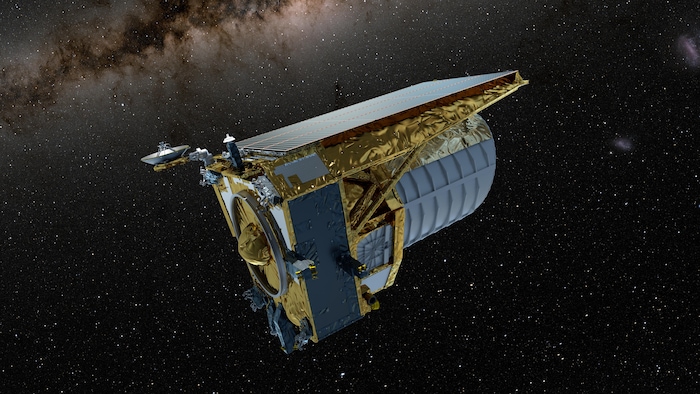Open in full screen mode Artist's illustration of the Euclid mission in space. Agence France-Presse The Euclid space telescope, one of whose instruments was obstructed by a thin layer of ice, has regained its view after a delicate defrosting operation, announced the European Space Agency (ESA). ESA feared that this encroaching frost would delay the mission, launched in July 2023, to probe the cosmic mysteries of dark matter and dark matter. dark energy. The defrosting procedure undertaken by ground teams, who gently warmed Euclid's mirrors, produced much better results than expected, ESA said in a statement. After warming the very first mirror by just 34 degrees Celsius, Euclid regained his sight, the Space Agency added. The mission teams had noticed as early as November that a telescope instrument, which reproduces images in visible light, was receiving less light than expected, with the stars appearing less bright than they should be. . Loading ELSEWHERE ON INFO: Family law: Quebec will introduce a new parental union regimeLoading in progress ELSE ON INFO: Family law: Quebec will introduce a new parental union regime In question, a layer of ice the thickness of a strand of DNA which had accumulated on the optics of the Euclid imager, operating some 1.5 million kilometers from Earth. One solution would have been to activate the onboard heaters to warm the entire spacecraft, as had already been done shortly after launch. But this option was risky, because the heat, by expanding the materials, would have required a recalibration of at least a month, and this would have delayed the mission, Ralf explained to AFP last week Kohley, one of the instrument's operations managers. So the team started with the individual mirrors, hoping to solve the problem without having to heat the entire telescope. Not knowing exactly where the frost had accumulated, we had to try different mirrors. Luckily, the first heated mirror was the right one, underlines the ESA. Euclid has experienced its share of setbacks since its launch. The influence of cosmic rays first disrupted the ship's guidance system, requiring a complicated update of its computer system. Stray sunlight also interfered with their observations, a problem that was fixed with a small rotation of the telescope. With the Euclid mission, scientists hope to learn more about the nature of dark energy and dark matter, two previously unobserved entities thought to make up 95% of the Universe.
Family law: Quebec will introduce a new parental union regime
Family law: Quebec will introduce a new parental union regime
Euclid telescope recovers sight

